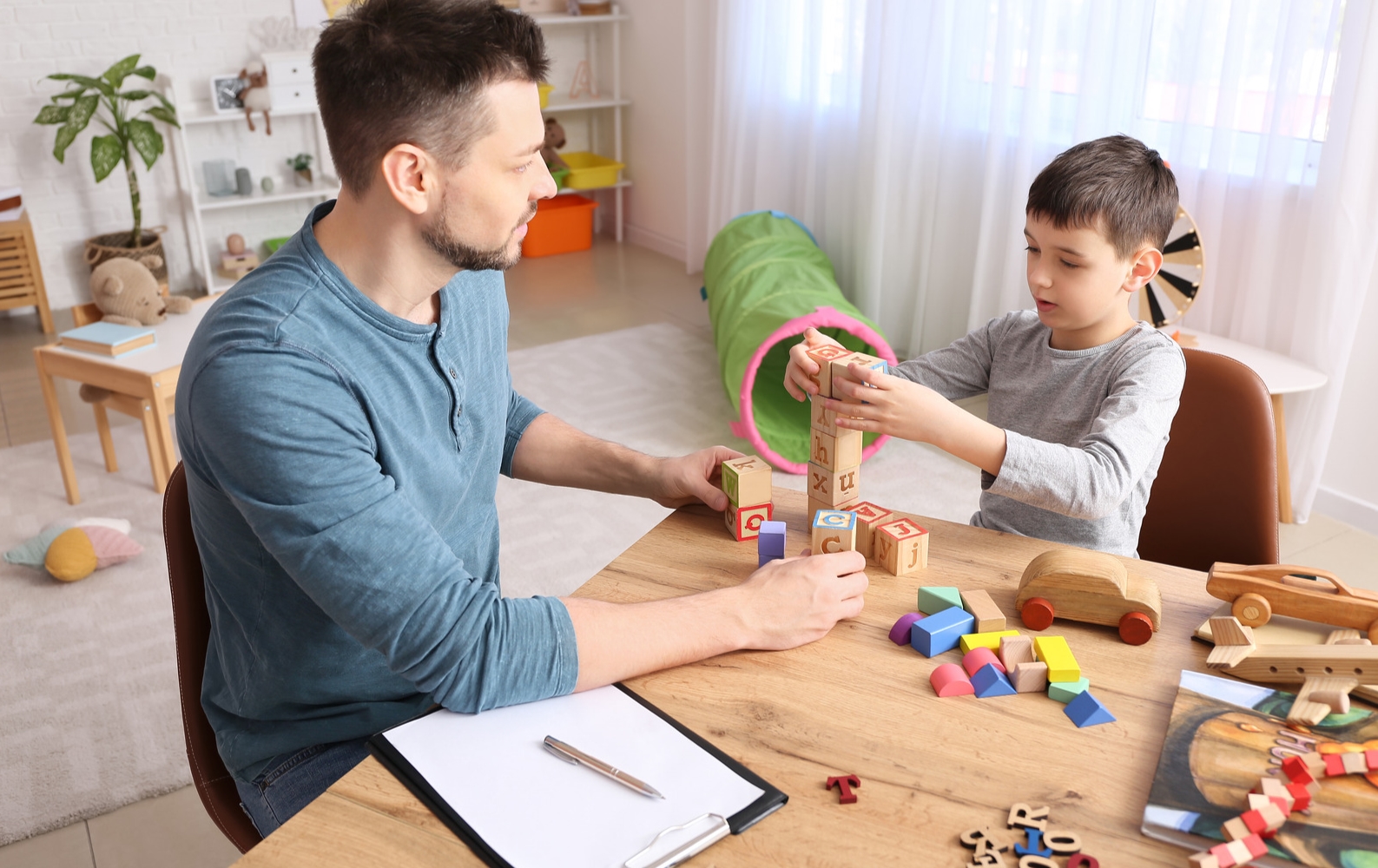Children with autism often have unique needs and preferences when it comes to toys. Finding toys that are both fun and educational can greatly support their development across various domains, including sensory processing, communication, social skills, and more.
In this article, we’ll explore the importance of choosing the right toys, what characteristics make a toy suitable for a child with autism, and more.
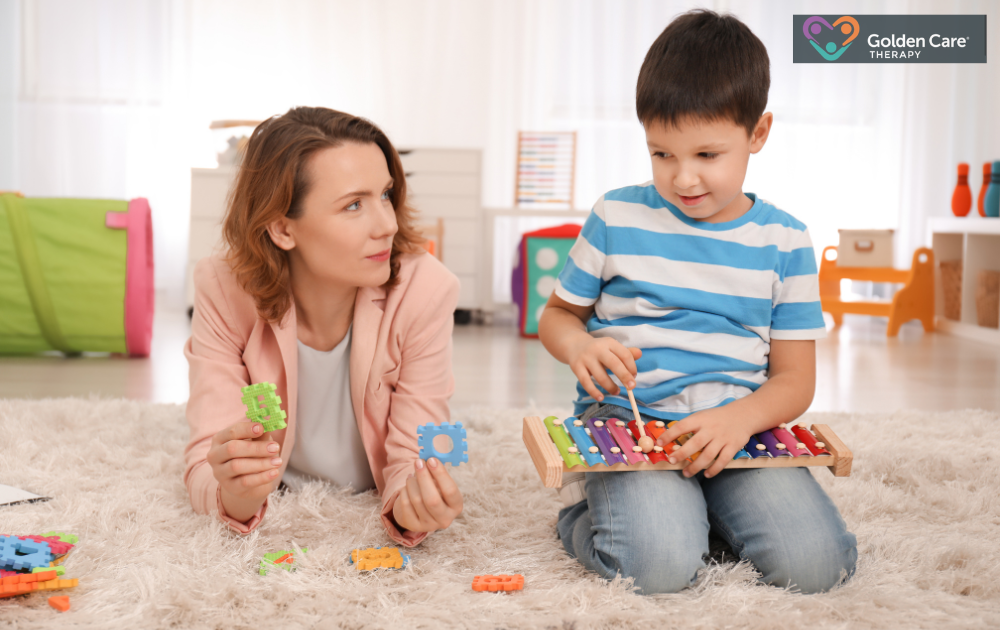
Understanding the Needs of Children with Autism
Autism spectrum disorder (ASD) is characterized by challenges in social communication and interaction, as well as restricted and repetitive behaviors. Children with autism may also experience sensory sensitivities or seek specific sensory stimulations. When selecting toys for these children, it’s essential to consider their unique needs and preferences.
Characteristics of Effective Autism Learning Toys
Effective toys for children with autism share several key characteristics that cater to their developmental needs. These are as follows:
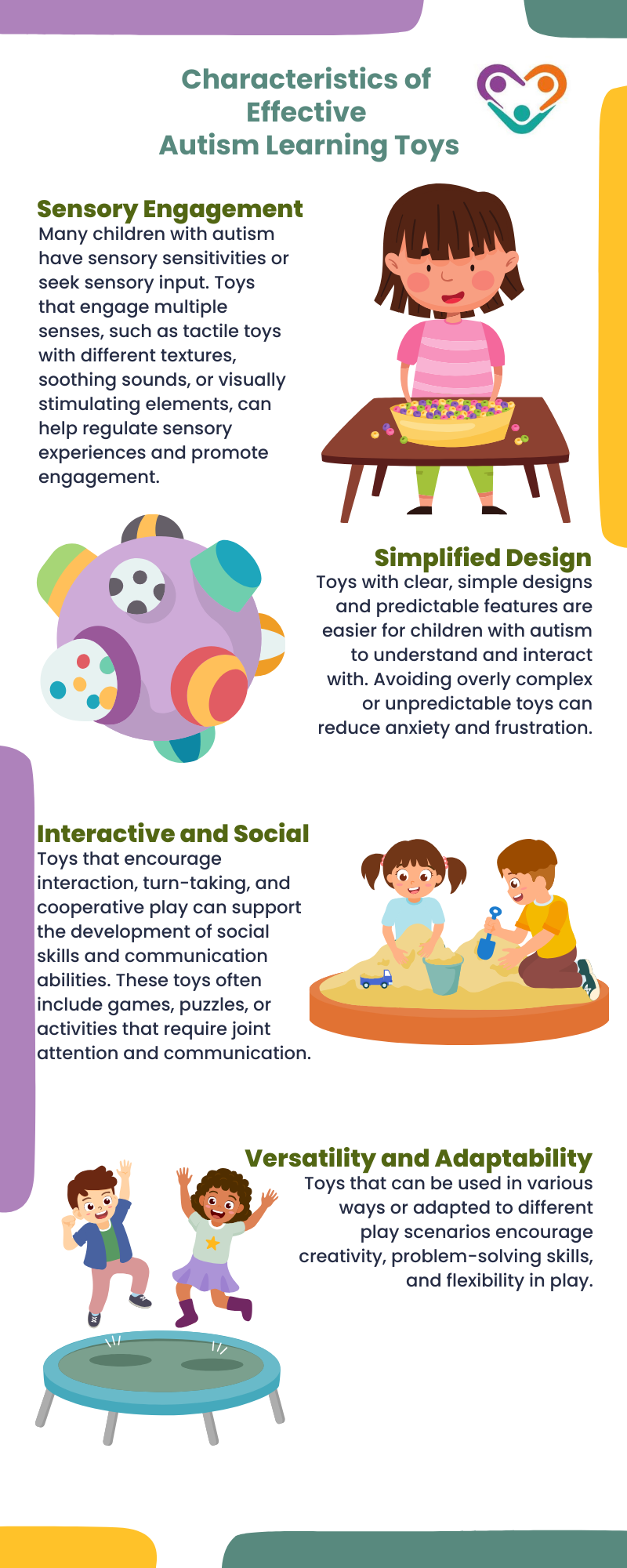
Types of Effective Autism Learning Toys
Toys are pivotal in nurturing children’s development across multiple domains. Building and construction toys like building blocks, LEGO sets, and construction kits not only enhance fine motor skills and spatial awareness but also foster creativity and problem-solving abilities through structured play. These toys encourage children to plan, design, and build, promoting both physical dexterity and cognitive growth.
Additionally, sensory toys such as fidget spinners, textured balls, and sensory boards play a crucial role in sensory stimulation and relaxation. They help children regulate their sensory responses and manage anxiety by providing tactile and visual experiences.
Alongside these, pretend play and role-playing sets like dollhouses, play kitchens, and dress-up costumes stimulate imaginative play. These activities support language development and social skills as children engage in creative scenarios, fostering communication and emotional understanding.
Educational games such as board games, card games, and cognitive-based electronic games further enhance developmental skills such as decision-making, problem-solving, and teamwork through structured rules and interactive gameplay. They can even enhance the academic performance of autistic kids.
Visual and auditory learning aids, such as picture books, interactive storybooks, and specialized educational apps, cater to diverse learning styles, supporting language acquisition, literacy skills, and auditory processing abilities in children with autism.
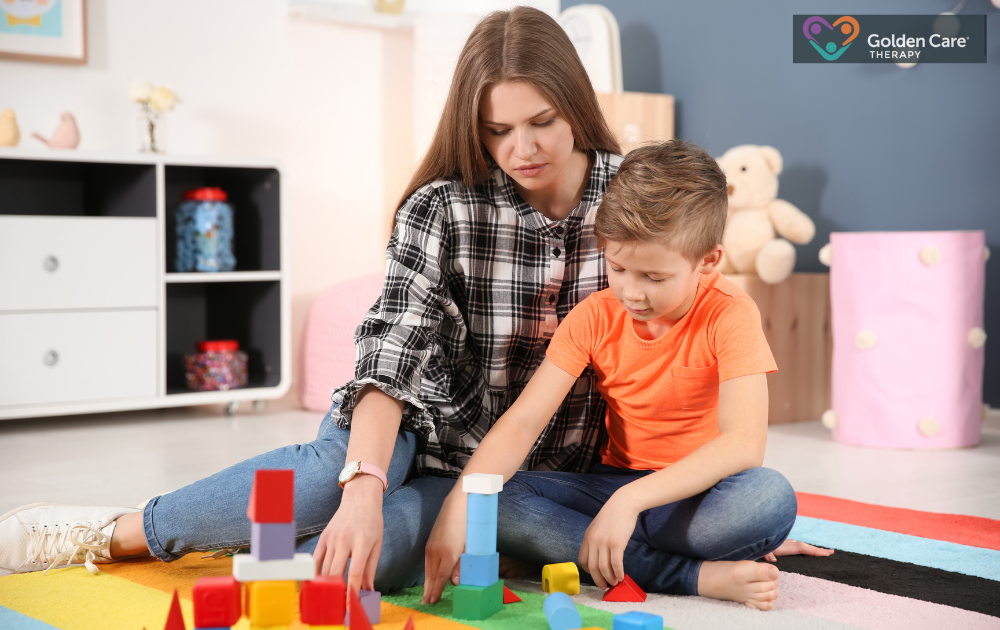
Research Supporting the Benefits of Autism Learning Toys
Research has consistently shown the positive impact of well-chosen toys on the development of children with autism.
A study found that interactive toys improved social reciprocity and joint attention in children with autism. Another study demonstrated that sensory toys can help regulate arousal levels and reduce anxiety in children with autism. These studies underscore the importance of selecting toys that not only cater to sensory preferences but also promote social interaction, communication skills, and overall well-being in children with autism.
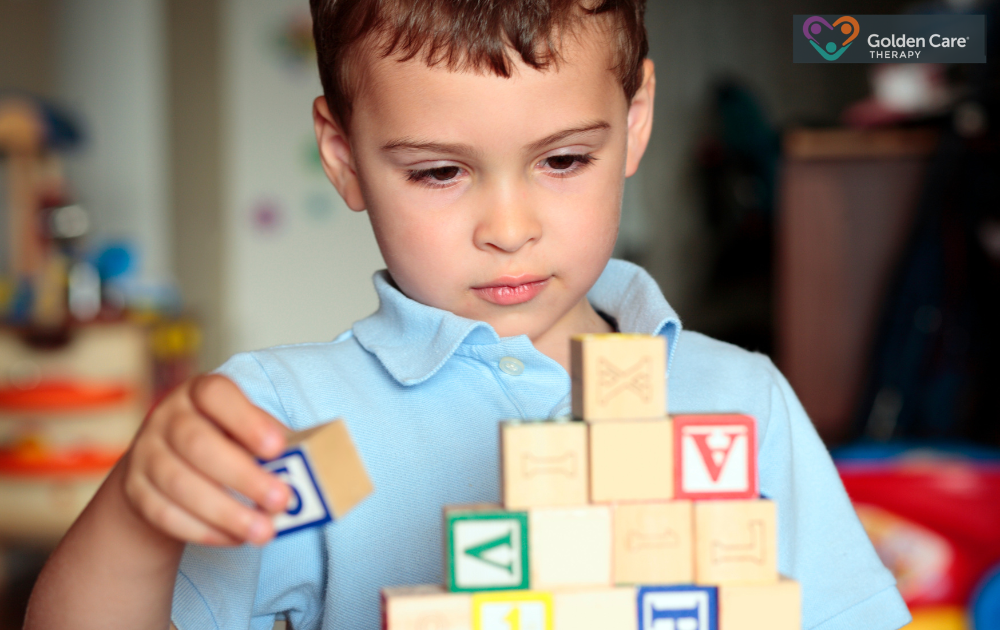
Practical Tips for Selecting Autism Learning Toys
When choosing toys for children with autism, it’s essential to consider their unique sensory needs, communication skills, and interests. Selecting the right autism learning toys can encourage engagement, promote skill development, and enhance overall learning experiences.
To achieve that, here are some practical tips that parents and caregivers should keep in mind:
- Observe and Understand Preferences: Pay attention to your child’s sensory preferences and sensitivities. Choose toys that align with their sensory needs, whether they seek tactile stimulation, prefer visual or auditory input, or benefit from calming sensory experiences.
- Promote Social Interaction: Select toys that encourage interaction with peers, siblings, or caregivers. Cooperative games, turn-taking activities, or toys that require communication and collaboration can enhance social skills and foster meaningful connections.
- Balance Structure and Flexibility: Provide a mix of structured activities and open-ended play opportunities. Structured games and educational toys can build specific skills, while versatile toys allow for creativity and exploration.
- Consider Developmental Goals: Tailor toy selection to support specific developmental goals, such as language development, fine motor skills, or emotional expression. Choose toys that offer challenges appropriate to your child’s current abilities and encourage growth.
- Monitor Engagement and Adapt as Needed: Observe how your child interacts with toys and adjust accordingly. Some toys may initially be challenging but can become more engaging as skills develop. Rotate toys regularly to maintain interest and provide new learning opportunities.
Here’s a video showing more information regarding how to choose the right toy for autistic kids:
The Bottom Line
Choosing the right learning toys for a child with autism involves understanding their unique needs, preferences, and developmental goals. By selecting toys that provide sensory engagement, encourage social interaction, and support various learning skills, parents, caregivers, and educators can create enriching and enjoyable play experiences.
These toys not only foster skill development but also enhance confidence, independence, and enjoyment in learning, making them invaluable tools in supporting children with autism on their developmental journey.
The thoughtful selection of toys can significantly contribute to the holistic development of children with autism, nurturing their strengths and supporting areas of challenge in a fun and engaging manner.
By incorporating these principles into toy selection, caregivers can enhance the learning and growth opportunities for children with autism, promoting their overall well-being and quality of life. For personalized support, consider consulting an ABA therapist in New Jersey, Georgia, Indiana, and New York. Golden Care offers professional services to help your child thrive. Contact us today so you can book a session or learn more about our offerings.
Sources:
https://www.healthline.com/health/parenting/toys-for-kids-with-autism
https://otsimo.com/en/educational-toys-children-autism
https://www.healisautism.com/post/toys-and-children-with-autism

